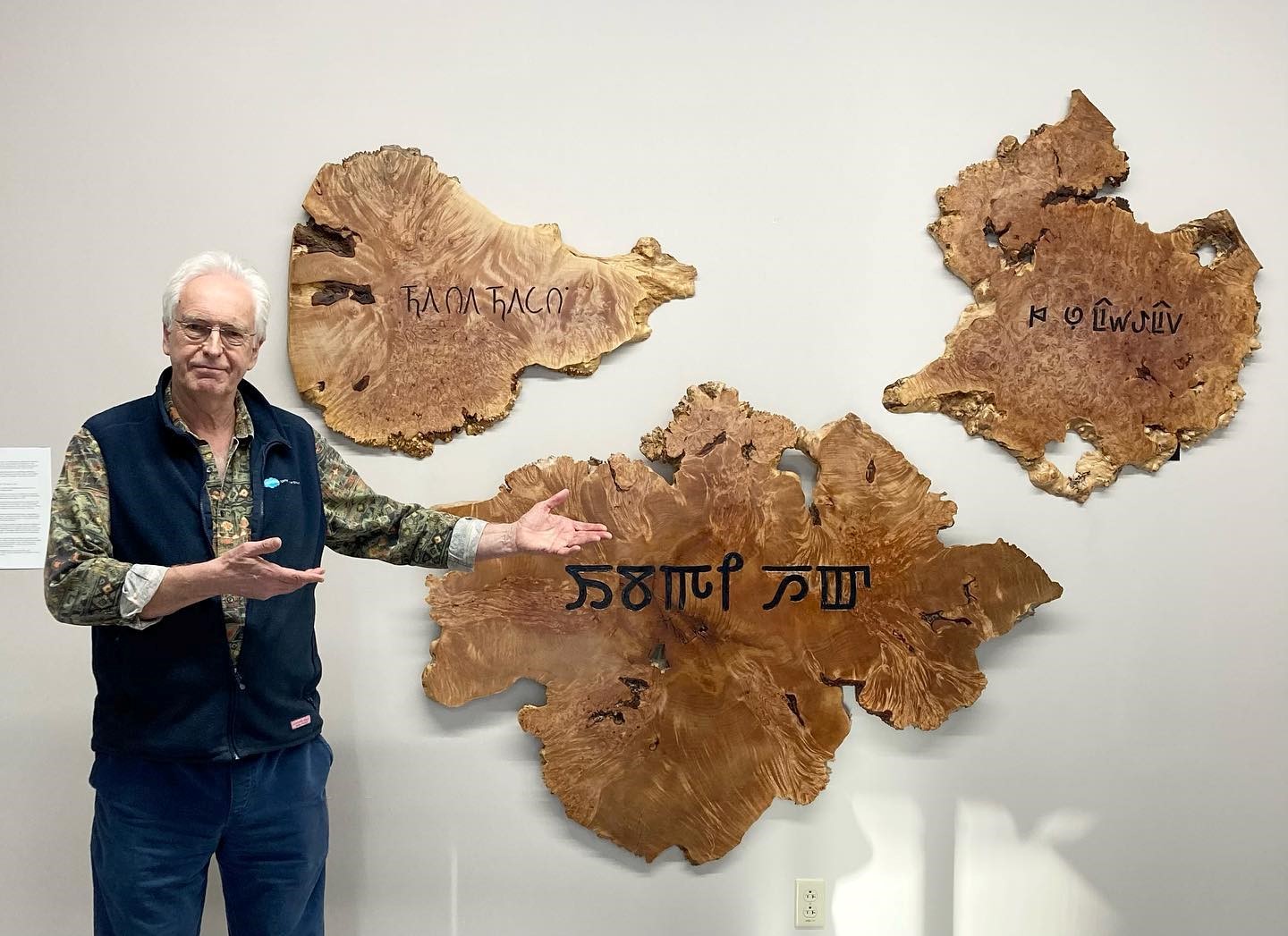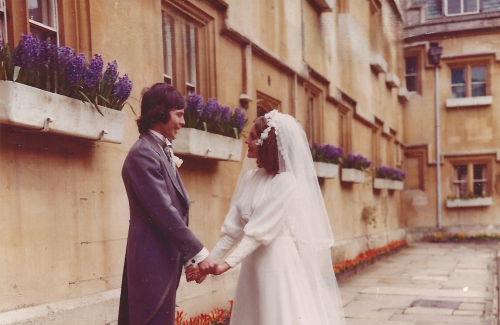More Pembroke news
Alumni Success Story: Pembroke Alum Delves Deep into Endangered Alphabets
NEWS |

Alumnus Tim Brookes (1971, PGCE English) is the founder of the Endangered Alphabets Project, the only organisation in the world studying Indigenous and minority scripts and addressing the issue of cultural erosion through script loss. He shares his story and his fascinating work below.
"If there was one thing I learned at Pembroke, though it was part of a less official and more vernacular curriculum, it was that we were supposed to do something nobody else was doing.
Within days of arriving, we were told that Christchurch, right across the street, had turned out dozens of prime ministers, scores of Archbishops of Canterbury, and hundreds of Viceroys of India, and if we were too restless to be civil servants and too pagan to be archbishops, we were still left with the sense that we had better do something original, or at least out of the ordinary.
One of my friends joined the Oxford University Exploration Club and went to the jungles of Ecuador; two friends bought a Mini and set off to drive to Nepal, and even if they didn’t quite make it, having a head-on collision with a lorry in Turkey that ripped off one entire side of the Mini and left them both in hospital for a while, it was generally agreed that they had done the right thing.
I hitch-hiked around North America and, almost entirely without qualifications, got a job teaching at the University of Vermont where I discovered my office neighbour had also gone to Pembroke. Not so original after all.
I spent the next thirty-five years in Vermont, dodging in and out of teaching and spending more and more time writing—books, essays, humour, journalism, reviews, what have you—always looking for something nobody had written about before, semi-successful but never quite satisfied. And then, entirely by chance, having no background in linguistics and having done miserably at school in both art and woodwork, I started carving pieces of text in endangered alphabets.
The story of how it started is too long and absurd to tell quickly (see https://www.endangeredalphabets.com/about-us/a-personal-history/), but almost at once it was clear that, at the age of 56, I had found my life’s work.
The endangered languages movement was up and running, but nobody in the world was investigating traditional and indigenous writing systems. Nobody even knew how many there were, let alone which were thriving and which were being driven out of use by more powerful and dominant scripts, of which the Latin alphabet (the one used by Europe and, by now more than three-quarters of the planet) was the chief villain.
But it was clear that for a culture to lose its traditional script meant losing its entire written record, and with it a sense of its history, its collective knowledge, its identity, its right to a foothold on the earth.
Not only that, but the scripts I began to discover were beautiful, or astonishing, or astonishingly beautiful. Some were only used in secret; some were so sacred that every letter had a mystical meaning; one was based on the branding-marks used on camels; one was recited as part of a transcendental ceremony. Many were more elegant, more user-friendly, more accurate, easier to learn, more deeply embedded in their visual culture, easier to pronounce, spiritually richer, or more calligraphic than the Latin alphabet. Who would not want to carve them?
So the Endangered Alphabets Project was born, and it quickly became clear that there are pros and cons to doing something nobody else is doing.
On the plus side, there was important work to be done wherever you looked.
Tons of research, of course, made harder by the fact that endangered alphabets are a symptom of endangered peoples, geographically remote, with little or no internet footprint.
Lots of advocacy work, too, identifying minority cultures, making contact, promoting them and their scripts by giving talks and exhibitions and creating a constant stream of social media. Helping to create learning materials, classroom materials, illustrated dictionaries for kids.
Then education, of course, aimed at a public that had no inkling that endangered alphabets were even a thing. And with that in mind, creating board games and card games and puzzle books to bring the subject home in as fun and unusual a way as possible.
On the minus side, if you have the field to yourself, you’re on nobody’s radar, and you have no funding. No grants. No foundations. No university research programs. No faculty positions. From the very start, our principal source of revenue has been crowdfunding, mainly through Kickstarter. Once a year I gnaw nails and tear hair, watching the numbers grow agonizingly slowly toward a goal. Try it. So much fun.
Currently, I’m trying to create an incubator program for fostering and developing newly-created minority scripts, helping to develop a set of educational resources for learning Abenaki (my local Native language, one of the most critically endangered in the world), finishing my next book, Writing Beyond Writing, and gathering material for a database of every single script currently in use in the world, and assessing its degree of vitality or threat. Pretty confident nobody else is doing that.
But here’s the thing about doing something nobody else is doing: when people find out, they want to help. Some write cheques, which is of course wonderful; most ask if they can volunteer. So the Endangered Alphabets Project is one person plus, at any given time, twenty to thirty volunteers all over the world, bright people, committed people, interesting people, the kind of people you went to college with. But younger, of course.
I wouldn’t have it any other way."
Tim will speak in-person at our Alumni Weekend later this year, taking place between 22nd - 24th September 2023.

